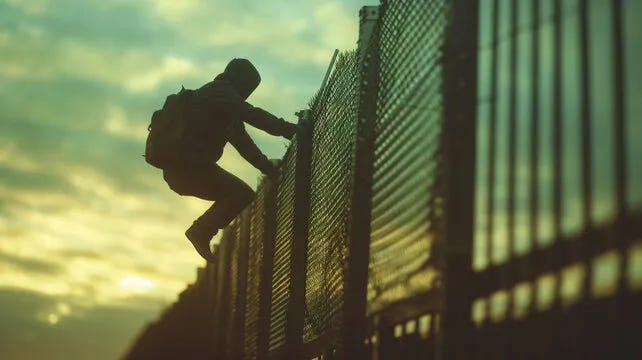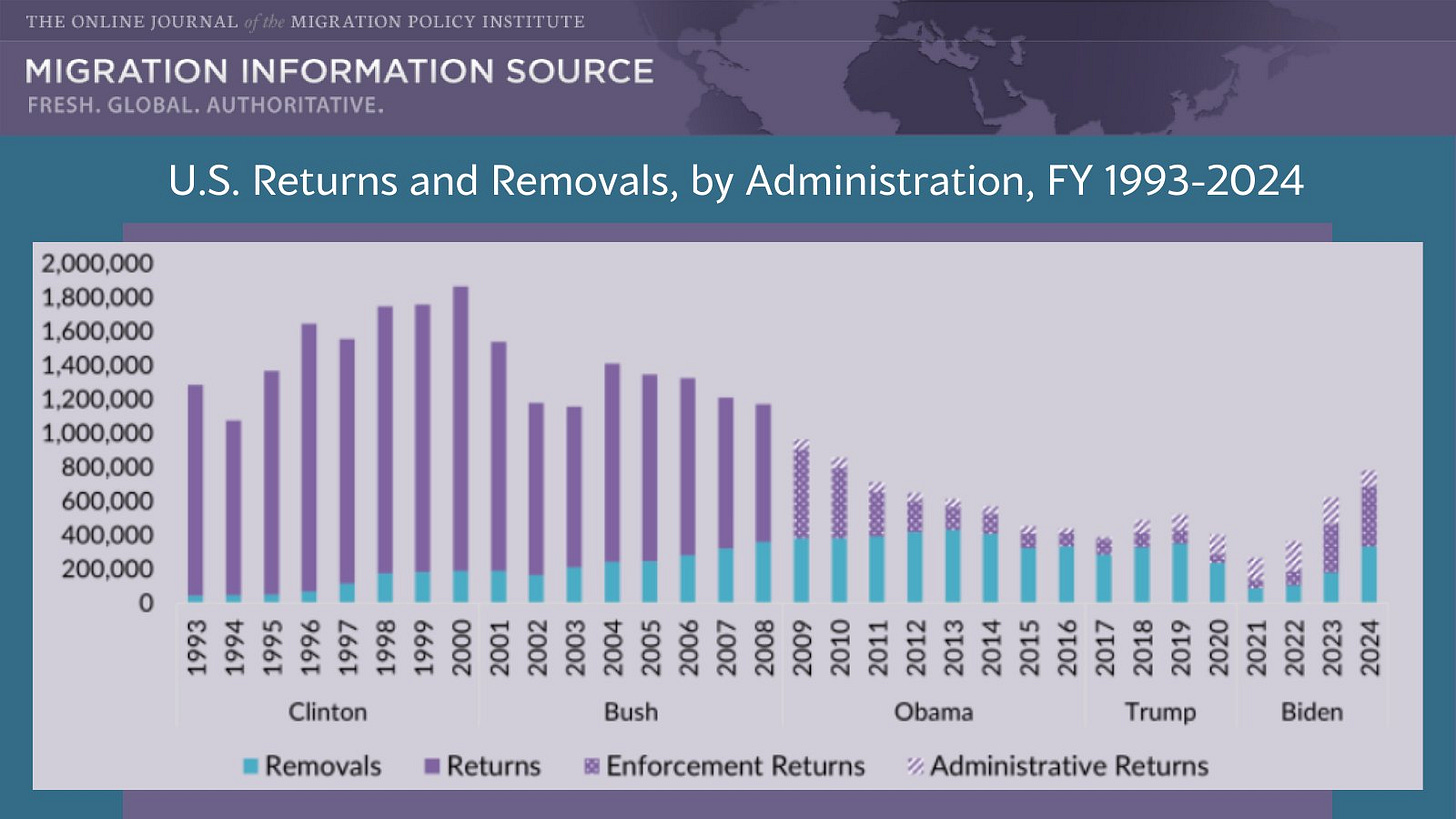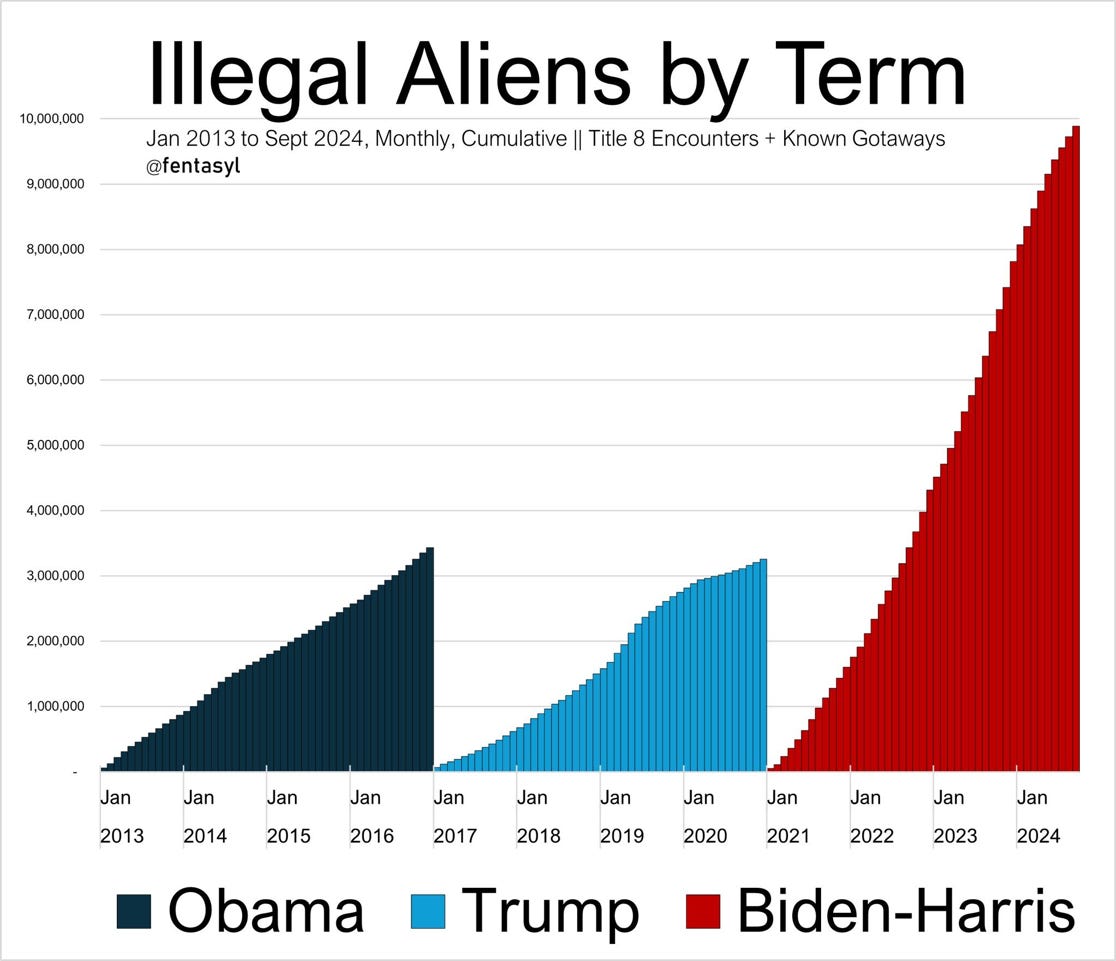Immigration Laws the U.S. Should Emulate
Considering why some are kicked out, and the criteria for who should be let in.
Atlanta, GA
February 1, 2025
As noted in my recent “inaugural address”, there isn’t much a president is authorized to do. In a nutshell, he must execute the few constitutional laws Congress passes, and veto the rest.
Repelling and expelling invaders is obviously among the permitted functions of his restricted role. Not only should a president deport anyone who illegally enters American territory; to honor his oath, he has no choice.
If citizens don’t like the laws, they should convince Congress to change them. But if statutes are constitutional (as those ousting illegals obviously are), the president is obligated to execute them. To do otherwise is an impeachable offense.
Misunderstood Amendment
Eliciting recent uproar was Trump’s executive order rescinding “birthright citizenship”. Critics claim this directive violates of the first clause of the 14th Amendment.
But it doesn’t. At least not according to the man who wrote it. Let’s review the relevant language:
"All persons born or naturalized in the United States, and subject to the jurisdiction thereof, are citizens of the United States and of the State wherein they reside."
Senator Jacob Howard, who authored these words, elaborated on what “subject to the jurisdiction thereof” meant, and to which people it didn’t apply:
"This will not, of course, include persons born in the United States who are foreigners, aliens, [or] who belong to the families of ambassadors or foreign ministers accredited to the Government of the United States, but will include every other class of persons." [emphasis added]
In other words, Trump is right about this. At the very least, it’s not obvious he’s wrong.
The jurisdiction clause has long been misunderstood, misrepresented, or ignored. It was meant for postwar freedmen, not foreign intruders.
According to the author of the 14th Amendment, any non-citizens with allegiance to another country are not subject to the “jurisdiction” of the United States, so their offspring who happen to be born here would not automatically become Americans.
This was the accepted understanding till the turn of the last century, when the current nonsensical interpretation began to take root.
Not that modern judges will agree. They almost certainly won’t. Unsurprisingly, one has already blocked the order. We’ll see where this goes, tho’ it seems destined to reach the Supreme Court.
“Un-Christian?”
So much for Caesar. What about Christ?
We know that “constitutional” and “Christian” aren’t synonymous. As with the 16th Amendment, they’re occasionally at odds.
A decade ago, Pope Francis denounced Donald Trump as “not Christian” for proposing a wall on the border and desiring to deport anyone who illegally crossed it.
There are as many reasons to assume Donald Trump isn’t Christian as to affirm Joe Biden isn’t Catholic (tho’ the Bishop of Rome was always strangely silent on the latter litany).
But is it “un-Christian” to want to build barriers and deport criminals? Isn’t that what locked doors, local police, and private security are all about? I was unaware trespassing was a noble virtue, or that inhibiting and punishing it were Christian vices.
So, apparently, was St Thomas Aquinas.
Aquinas on Immigration
St Thomas was smart enough to notice that not all foreigners are alike. Among other distinctions, some are hostile and others peaceful.
As such, Aquinas recognized every nation’s right (and responsibility) to discern which potential immigrants would be beneficial or baleful, rather than blindly letting all of them in.
Rules of entry and repulsion should be adopted and enforced based on what’s best for those living legally within the territory being protected.
Obviously migrants think they’ll be better off in their desired destination. Otherwise, they wouldn’t try to go there. But the criteria for entry should be whether these arrivals will help the hosts, not if access benefits outsiders wishing to cross the border.
Aquinas affirms the rule of national law in dealing with both peaceful and pernicious immigration. He continues by insisting migrants wanting to remain in a new land must express a sincere desire to integrate fully into the culture of that country.
Newcomers need to adapt to their adopted nation, and becoming a citizen takes some time. Aristotle suggested it could require as much as three generations. Aquinas offered no timeframe for acclimation, but did explain why a lengthy interim was warranted:
“The reason for this was that if foreigners were allowed to meddle with the affairs of a nation as soon as they settled down in its midst, many dangers might occur, since the foreigners not yet having the common good firmly at heart might attempt something hurtful to the people.”
Aquinas recalled that ancient Israelis didn’t treat all immigrants equally since those from nations nearer to them more easily assimilated than those from more remote realms. Hostile peoples were to be excluded entirely due to their enmity toward the Jews.
This common sense was once an integral component of US policy. Till the 1960s, new arrivals were carefully curated to not disrupt national unity. They were selected based on the likelihood they’d seek assimilation, not engender disruption.
Immigrants were expected to learn English, appreciate Western culture, and adopt American traditions. This is why applicants from European Christendom were given priority.
But this is no longer the case.
Strictest in the World
Pope Francis condemns anyone (well… Westerners, at least) who resist unrestricted immigration, going so far as to accuse those turning migrants away of committing “grave sin.” No word whether this censure applies to places like Israel, Korea, Iran, Japan, … or the Holy See itself.
Denouncing a desire to dispel intruders is particularly ironic from a man ensconced in a fortified city behind a series of walls. If random “migrants” can’t just venture thru the Vatican, why should a smorgasbord of interlopers from scores of countries be able to wantonly wade, walk, or ride into America?
Francis added that “We can all agree on one thing: Migrants should not be in those seas and in those lethal deserts.” Well, yes. We can all agree on that.
But it doesn’t logically follow that these nomads therefore have a right to reside wherever they want, or that every nation is obliged to let them in. The Argentine Jesuit should understand that better than anyone.
Vatican immigration policy (which Francis tightened in 2023 and toughened again just a couple weeks ago) is among the strictest in the world. The Leonine Wall essentially circumscribes the city, which is protected by 104 armed soldiers of the Swiss Guard. Only citizens (of whom there are fewer than 800) can reside in the Vatican. Penalties for illegal entry include fines, imprisonment, and permanent bans.
Protecting Refugees
But let’s be fair. Just because some who insist illegal aliens shouldn’t be resisted or returned are hypocrites doesn’t mean they’re wrong. Catholics acknowledge that travelers and strangers (assuming they possess humility and gratitude) should be met with charity and goodwill.
Pope Pius XII agreed that each nation is the proprietor of its territory, but that it mustn’t too eagerly seal its borders to those who reasonably ask to enter. His Holiness insisted that persecuted refugees be given special consideration.
During the Second World War, Pius gave it to them. He opened the Castel Gandolfo to anyone wishing to enter. Risking the wrath of the Nazis (who’d repeatedly threatened to arrest or kill him), the pope welcomed 12,000 refugees displaced by fierce fighting in Italy.
Granted, these weren’t illegal immigrants. But they were desperate people in need. Pius opened his gates and asked no questions. No baptismal certificates were requested, nor any particular political affiliation required. Under the pope’s protection came many Roman Jews.
Pius provided additional sanctuary at the cloistered Roman monasteries of Santi Quattro and Santa Susanna, which the pope ordered “to hide all people wanted by the Nazis, especially Jews.” Similar papal decrees were issued to all parishes and religious houses in Rome.
This is how legitimate refugees should be accommodated. But unfortunately, persistent abuse of the US system by migrants (or their advocates) who fraudulently claim to be seeking “asylum” undermines access for those who genuinely need it.
Rights and Privileges
Pius XII recognized a “right to migrate.” So do I. But that doesn’t imply a “right to enter.”
Emigration is a right. Immigration is a privilege. My right to leave my house doesn’t entail a prerogative to enter someone else’s.
Open-border Catholics often equate illegal aliens entering the US with the Holy Family fleeing Herod. But that analogy is absurd.
Joseph and Mary violated no Egyptian laws. They never left the Roman Empire. They were more akin to Californians escaping to Arizona than to Salvadoran gangs travelling to Texas.
And the Holy Family wasn’t planning to remain in Egypt. When their peril passed, they returned home.
The comparison of Jesus, Joseph, and Mary to illegal aliens in the US is silly. Not because the Holy Family weren’t refugees. They were (Pius XII called them “the archetype of every refugee family”). But because our “undocumented migrants” aren’t.
Political refugees aren’t the object of deportation orders. Yet this false equivalence is one many Catholics…including cardinals, bishops, priests, and the pope… love to indulge. But they’re selective about how they do so.
And where.
As we noted, Vatican immigration laws are among the most stringent in the world. They’re justified as being necessary to “protect [the Vatican’s] small population and the sanctity of its grounds.”
Exactly. The purpose of any law should be to improve conditions for the citizens inhabiting the region where it’s applied. So why is America guilty of “grave sin” when it does the same?
Mopping the Mess
A cornerstone of Catholic teaching demands we prioritize family over neighbor, community over country, and nation over the rest of the world.
That being the case, what’s wrong with the US emulating immigration laws the Vatican has adopted? That’s all it’s trying to do.
Actually, it’s not even going that far. It’s simply reviving policy that pertained before the previous administration opened the floodgates.
No one is suggesting legal residents be removed. Unlike in the Vatican, non-citizens living legally in America are welcome to stay. Only illegal intruders are forced to go.
This isn’t novel. The Obama Administration booted 5M illegals. George Bush bounced twice that many, and Bill Clinton kicked out twenty percent more than that:
Recent deportations reached their lowest ebb during Trump’s first term. They edged higher as Biden’s progressed and the last election loomed.
By then so many illegals had been intentionally imported that the numbers expelled hardly made a mark. It was like using a thimble to empty Lake Ontario while doing nothing to plug Niagara Falls:
As a recession is the necessary cure for a fake boom induced by phony credit, mass deportations are the inevitable consequence of permitting millions of unassimilable aliens into a country.
It’s a shame that certain migrants who never should’ve been here are going to be hurt. And some legitimate refugees are being denied entry under new orders. That’s terrible.
But fault lies with those who encouraged or assisted so many to enter illegally. Blame rests with people who made the mess, not the ones trying to mop it up.
Fed Up
For years, Americans have been implored to care for the plight of poor migrants. And they have. But what of concern for poor Americans? Why must their land and lucre be endlessly allocated to the rest of the world?
Crime is rampant. Debt is unbridled. Infrastructure crumbles. Purchasing power plummets. Chronic ailment is endemic. Fentanyl infests vast swaths of the country. Many rural regions and urban cores resemble Third-World hell-holes.
Yet the unappreciated victims are told to welcome floods of foreigners who flout the law. Americans have had enough, and are fed up.
They should be.
JD








"These are our ancestral homelands. We will defend our people and our culture."
Thus quoth the Native American Sioux. He stands before sacred Bear Butte in South Dakota. The Purveyors of Respectable Opinion nod in solemn agreement.
Thus quoth the Saudi Muslim. He stands outside the Kaaba in Mecca. The Purveyors of Respectable Opinion nod in solemn agreement.
Thus quoth the Israeli Jew. He stands at the Wailing Wall in Jerusalem. The Purveyors of Respectable Opinion nod in solemn agreement.
Thus quoth the Shinto Japanese. He stands inside a temple in Kyoto honoring his ancestors. The Purveyors of Respectable Opinion nod in solemn agreement.
Thus quoth the Frenchman in front of the Cathedral of Notre Dame, or the Italian in St. Peter's Square, or the Englishman inside St. Paul's. The Purveyors of Respectable Opinion erupt in righteous fury. "Nazi! Racist! Xenophobe!"
Another great article JD!
Everything you have written applies to the UK as well.
Have a great day my friend!
Mike